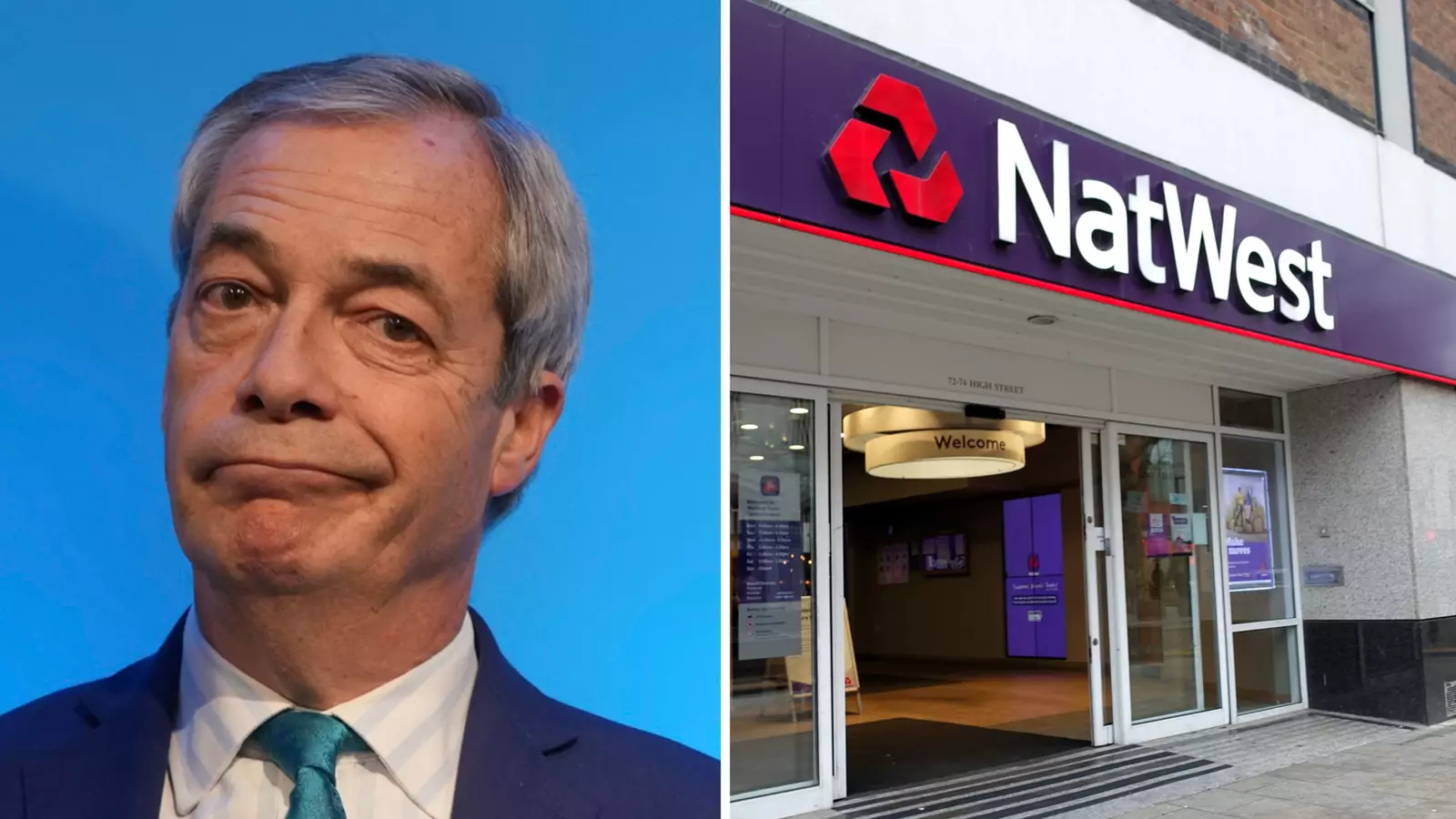The unfolding saga surrounding Nigel Farage and NatWest Group has captured significant media attention. Farage, the leader of Reform UK, is allegedly poised to initiate private criminal proceedings against the banking giant, igniting discussions about accountability, political influence, and the ramifications of the controversial debanking scandal. This situation is multifaceted, with profound implications not only for the individuals involved but also for the broader banking sector and political landscape in the United Kingdom.
Farage’s Pursuit of Accountability
Nigel Farage’s drive for a private criminal prosecution against NatWest stems from his contention that commercial decisions were veiled by political motivations when the lender’s Coutts subsidiary closed his bank accounts. Instruction to Chris Daw KC of Lincoln House Chambers raises questions about the bank’s governance and its adherence to principles of impartiality. Farage claims he has sufficient internal evidence suggesting that political factors influenced the debanking process—a serious allegation that, if proven, could have substantial repercussions for NatWest’s reputation and operational integrity.
This legal maneuver also serves a dual purpose: it allows Farage to position himself as a crusader for accountability in the face of what he describes as institutional malpractice, while simultaneously inscribing his grievances into the very fabric of UK politics. The fact that he is engaged in ongoing civil proceedings against the bank with Grosvenor Law, and now seeking criminal counsel, signifies a relentless pursuit of vindication and possibly damages that could run into millions.
The timing of this revelation is particularly salient, coinciding with the impending publication of NatWest’s annual results and the government’s plans to divest its remaining stake in the bank after nearly two decades. This timeline adds an additional layer of strategic calculation to Farage’s actions. By aligning his announcement with NatWest’s financial disclosures, the potential for public scrutiny over the bank’s decisions amplifies, creating a scenario ripe for political discourse.
The political ramifications are broader than mere accountability for one institution. Farage’s actions suggest he may be seeking to capitalize on this debacle to further solidify his position as a significant player in Britain’s evolving political arena. His party’s performance in the last general election, where they finished in significant positions in various constituencies, hints at a growing influence. Recent polling indicates that his Reform party is even positioned ahead of the traditional parties, Labour and the Conservative Party. Such shifts in public opinion can have lasting effects on the political landscape, especially as the nation heads into the next election cycle in 2029.
Despite the challenges posed by Farage’s endeavors, it’s noteworthy that NatWest is reportedly in a robust financial position, having emerged from the shadows of its past troubles, including the taxpayer bailout in 2008. The government’s gradual exit from its holdings signifies a closure of sorts on one chapter. Paul Thwaite, the current CEO, faces the complex task of navigating public sentiment while ensuring that operational excellence is maintained.
However, the specter of legal consequences looms large. If Farage is successful in his pursuit of a criminal case, it might not only tarnish NatWest’s revival narrative but could also lead to a comprehensive investigation into their operational procedures, particularly regarding how politically exposed persons (PEPs) are treated. The City watchdog’s recent directives aimed at ensuring fair treatment for PEPs post-debanking scandal exemplify the growing pressure on financial institutions to operate with heightened transparency.
Going beyond the immediate implications for NatWest, Farage’s actions mirror a growing public sentiment concerning distrust in the banking sector. The unfortunate reality is that banking institutions must now grapple with the dual challenge of proving their commitment to fair practices while rebuilding trust with the public. The scrutiny from political figures such as Farage can serve as a catalyst for reform but can equally portray the banking ecosystem as one that is vulnerable to political machinations.
Nigel Farage’s initiative to potentially press criminal charges against NatWest encapsulates a broader discourse on accountability, political influence, and the banking sector’s operational integrity. As events unfold, both NatWest and Farage will undoubtedly be the focus of heightened public and political scrutiny, perhaps reshaping the contours of expressed trust and governance in the United Kingdom for years to come. The situation is emblematic of a critical juncture where finance and politics converge, raising fundamental questions about power dynamics within society.


Leave a Reply